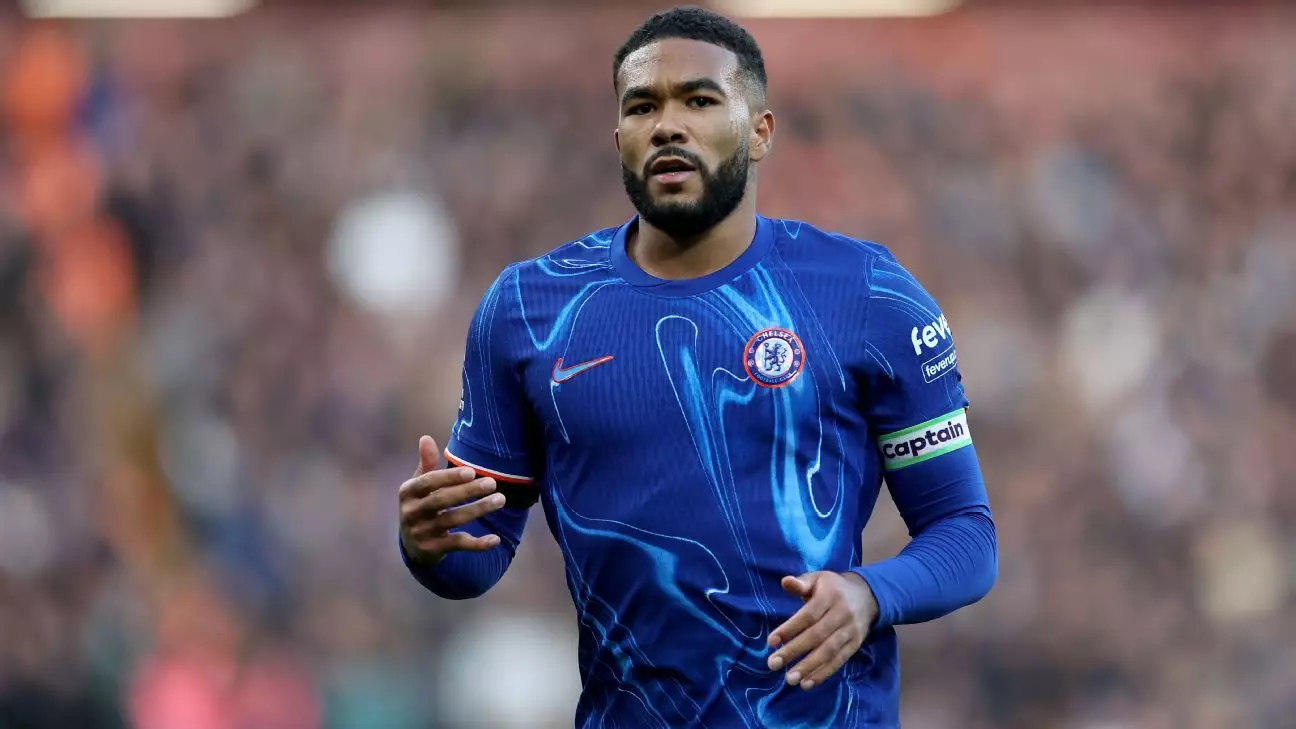In the ever-competitive landscape of professional football, the role of a captain extends far beyond mere statistics; it encompasses the essence of leadership, inspiration, and the ability to galvanize a team. Chelsea FC, under the management of Enzo Maresca, finds itself grappling with an apparent leadership crisis. As they commence the season, the club’s captain, Reece James, is under scrutiny for not just his performance but for his capacity to lead amidst adversity.
Reece James’s recent comeback from a protracted injury layoff marked a critical moment for Chelsea, culminating in his first start against Liverpool. While his presence on the field is invaluable, Maresca’s expectations suggest that mere participation does not suffice. The manager’s call for a more pronounced display of leadership highlights the nuances of captaincy that, when unmet, can leave a team adrift in both tactics and morale.
Maresca pointedly remarked that a captain is expected to “give more than the rest,” a statement that beckons a closer examination of what effective leadership entails. This perspective not only challenges Reece James but also serves as a reminder of the inherent responsibilities that come with the armband.
The absence of a “proper leader” within Chelseas’s ranks, as noted by Maresca, underscores a profound issue. Leadership in football is often equated with vocal presence and visible confidence, yet it also requires the ability to lift the team during challenging moments. Maresca’s comments suggest a lack of players stepping up to fill the leadership void, raising concerns about team cohesion and collective accountability.
While James navigates his way back into form, the emphasis on building character and leadership within the squad is critical. Maresca mentioned figures like Tosin Adarabioyo as potential leaders, indicating a need for a collaborative approach to leadership; one that does not rest solely on the captain’s shoulders but is shared across the team.
Chelsea’s performance at the season’s outset, with four wins out of eight matches, has been a mixed bag, leaving supporters and pundits alike searching for consistency. The upcoming fixture against Newcastle presents both a challenge and an opportunity for James to embody the expectations placed upon him. For the team to progress, it must draw from its collective experience and instill an unwavering belief in their capabilities to navigate the hurdles of the Premier League.
This transitional phase, fostered by the aspirations of both players and the coaching staff, will be pivotal. Reece James, as captain, must evolve from being a reserved contributor to an influential figure, inspiring his teammates through action and determination. True leadership is built on resilience, and if James can harness this potential, he and Chelsea may yet flourish as the season unfolds.
The pathway for Chelsea to regain their competitive edge lies not just within individual performances but in cultivating a culture of leadership throughout the squad. Enzo Maresca’s candid remarks serve as both a challenge and an invitation for Reece James and others to rise to the occasion. As the Blues face Newcastle, all eyes will be on the captain to step into his role, demonstrating that true leadership begins with a commitment to give more for the team. With every match, Chelsea has the opportunity to redefine their narrative, returning to prominence in the Premier League through unity and purpose.

